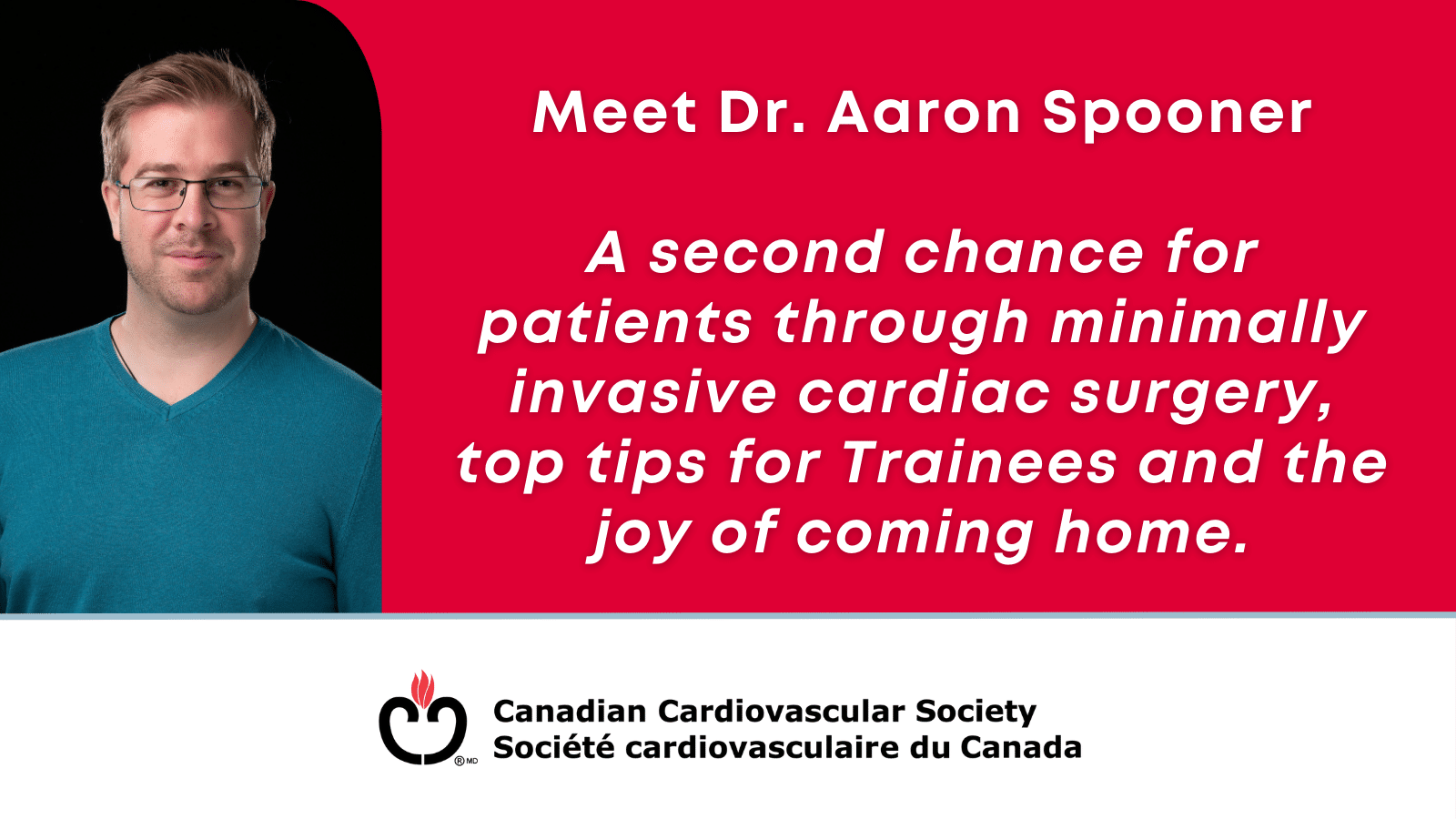
A second chance for patients through minimally invasive cardiac surgery, top tips for Trainees and the joy of coming home.
Dr. Spooner is an attending cardiac surgeon at St. Boniface Hospital and Assistant Professor of Surgery at the University of Manitoba in Winnipeg. He completed his residency at the University of Calgary in 2019 and moved to Texas shortly afterwards for a structural heart fellowship at the Houston Methodist Hospital. His main interests are in structural heart valve therapy, including TAVR, TMVR, MitraClip, and minimally invasive cardiac surgery. He was the recipient of the STS Michael J. Davidson Fellowship Award to support further training in percutaneous valve therapy. His non-clinical interests revolve around education and, during his residency, he completed a two-year Masters of Education in the Health Professions program from Johns Hopkins University.
What has made the biggest impact on your career so far?
The mentorship I received through my training and after have played an instrumental role in helping shape me. Because I benefited so greatly from the time, feedback, and guidance my mentors provided, I was inspired to pursue my Masters in education and become involved with various committees and educational events like the CCS Trainee Review Programs, so I can lend that same support to others.
What is your most memorable career accomplishment?
Starting a Minimally Invasive Cardiac Surgery program at the University of Manitoba has been a very satisfying project for me. Given this area of cardiovascular surgery is one of my core clinical interests, I am very proud of the great clinical results this program has produced, especially knowing the impact the minimally invasive approaches we specialize in has on our patients’ quality of life after surgery.
What is your top tip for trainees and early career CCS members?
Really focus on honing your wire skills and spend lots of time in the cath lab. These skills are invaluable to contemporary surgeons and will serve you well throughout your career.
What brings you happiness every day?
Coming home to my wonderful family. I couldn’t do this without my wife and girls.
What are five experiences on your bucket list?
Travel, travel, travel. Someday I hope to stay in an ocean hut in Fiji, wander the hilly landscapes of the Azores, embark on a walkabout in Australia, revisit the hikes of New Zealand, and finish going through national/state/provincial parks in every state and province.
What motivates you every day?
Knowing that the work we all do truly benefits people and gives them a second chance at life. It’s rare in medicine and surgery to have such an immediate and dramatic positive benefit on your patients’ lives and we (both myself and the patients!) are quite appreciative of that.
Other News
See AllCelebrating National Volunteer Week at CCS
April 18, 2024
CCS members have a diverse range of skills, experience, interests, and backgrounds. One common trait...
CCS News MembershipNominate a Colleague for the 2024 CCS Recognition Awards
March 8, 2024
The CCS is proud to recognize members for outstanding contributions to the field of cardiovascular...
CCS Recognition Awards MembershipCalling All CCS Members! Volunteer on a CCS Committee
March 8, 2024
The CCS is comprised of members with a vast range of skills, experience, interests, and diverse...
Membership